Cardiff: Dad walks daughter down aisle after brain injury
- Published
Watch the moment a man walks his daughter down the aisle after recovering from a serious brain injury
Farmer Roger Jones was able to walk his daughter down the aisle two years after doctors warned his family he might not survive a brain infection.
Surgeons had to remove part of his skull in 2021, leaving it unlikely the 68-year-old would ever return to the family farm in Castleton, Cardiff.
"They told us people in Roger's condition end up in long-term care," said wife Gill.
But determination to be there for his daughter helped him walk again.
"They actually told [my wife] they didn't think I'd live," Roger said, remembering how his illness began over Christmas in 2020 when one side of his face started to droop.
"We thought he'd had a stroke," Gill said, but doctors diagnosed a possible bout of shingles.
Then in January 2021 he was diagnosed with a sinus infection that had breached Roger's brain membrane causing an abscess.
"At that point they weren't sure whether or not he would survive," Gill remembered, explaining how because of Covid restrictions she did not see her husband in person for nearly three months after first taking him to hospital.
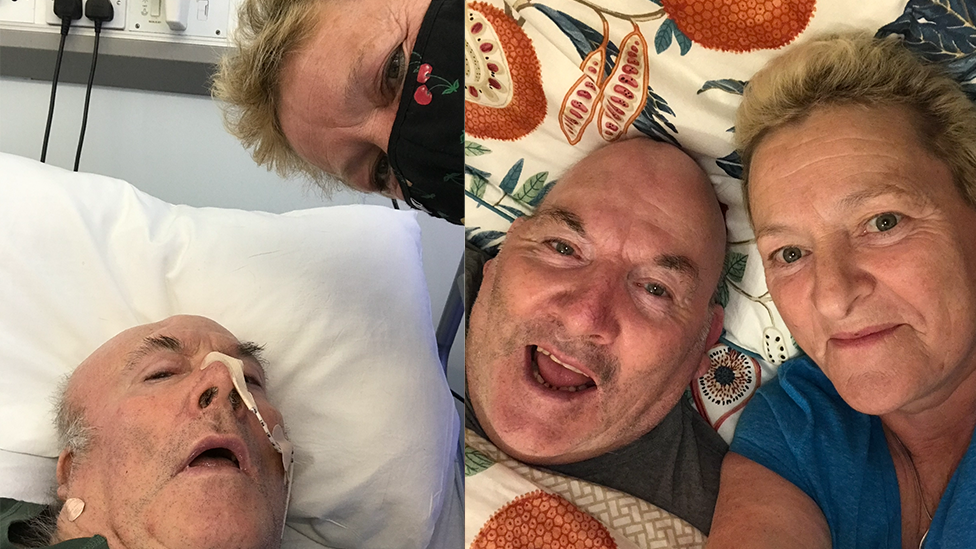
Gill seeing Roger in person for first time in three months in April 2021 and (right) the couple's first night in their own bed, 633 days after he first went into hospital
Roger underwent nine surgeries over a five-month period with surgeons first removing the infected parts of his skull and finally replacing the bone with a titanium plate.
"It was awful," Roger said, admitting he does not remember much from that period, besides worrying about the fate of his farm close to the M4.
But Gill and his daughter Kate had "stepped up" managing the cattle and sheep and preparing to plant crops while Roger sat alone in hospital.
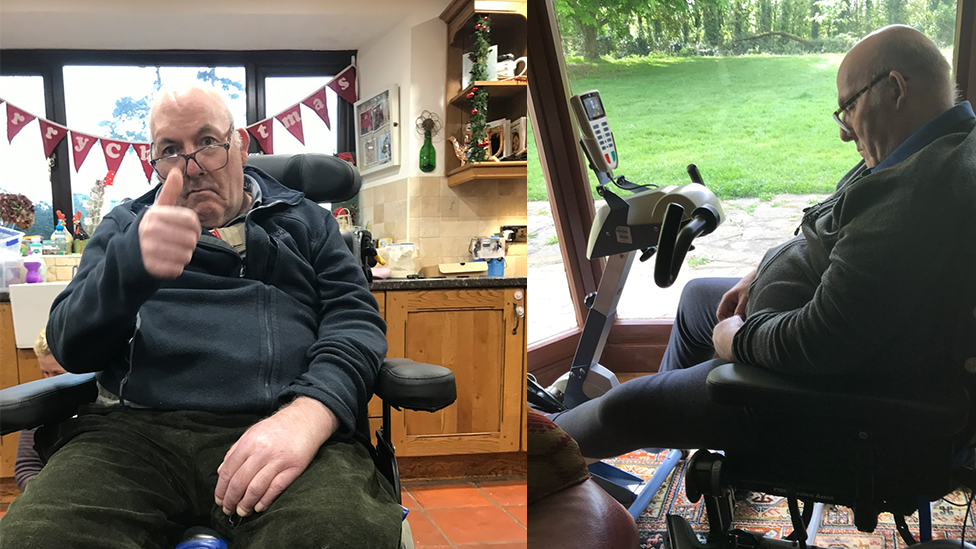
Roger was still unable to walk or stand up nearly five months after coming home from hospital
"We could not buckle," Gill said, "because if we buckled he wouldn't have anything to come home to".
Roger began specialist physiotherapy at Cardiff's Llandough Hospital in June and came home in November.
Unable to walk or even lift himself up, he had to depend on a team of in-home carers and a hoist to get around.
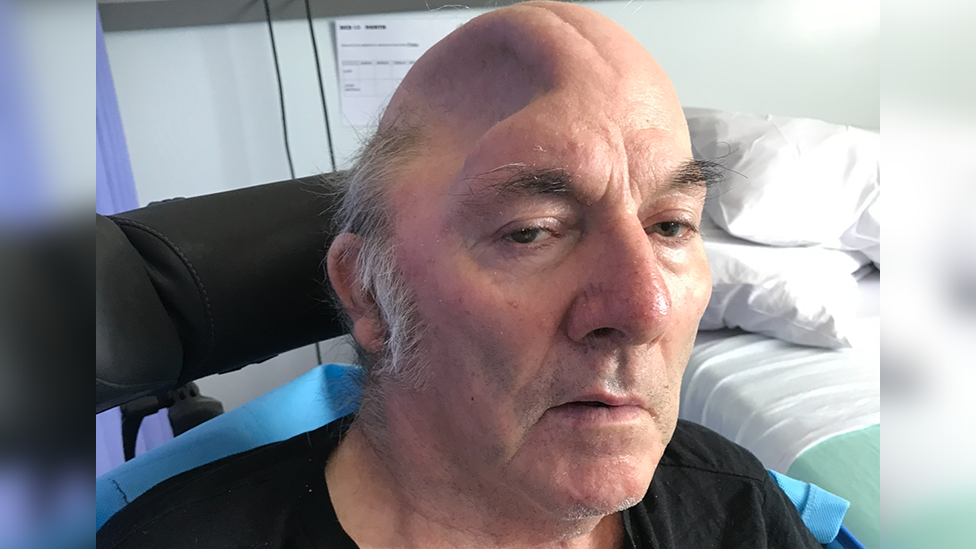
Roger Jones had to have part of his skull removed to get rid of an infection
"When we had the discharge meetings, it was a case of 'this is as good as it gets'," Gill said.
"They said, 'you might improve a bit more but... people with Roger's needs go to a care home'."
"I knew I wasn't going to do that, I was gonna fight. I had to fight it," Roger remembered thinking.
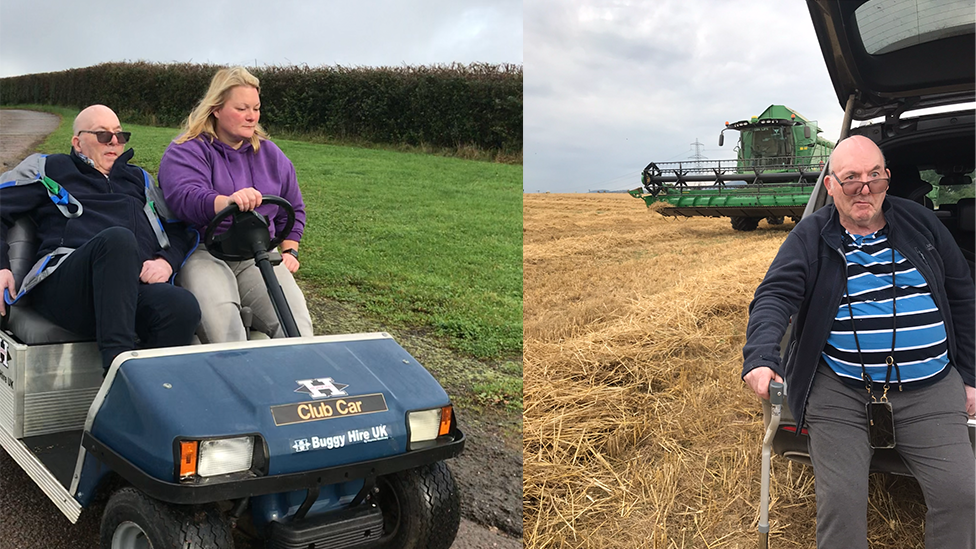
Desperate to get back on the farm he had worked for more than 40 years daughter Kate Jones (left) strapped her dad to a golf buggy and drove him around
"We knew that we wanted to get him home," Gill said.
Roger said being at home "made all the difference".
He set a goal of driving a tractor again, something he had not done yet, and when his daughter Jessie got engaged, of being able to walk her down the aisle.
"It's something you do really," he said, "you want to take them down the aisle".
He said the first "game changer" was getting a mobility scooter to help around the house.
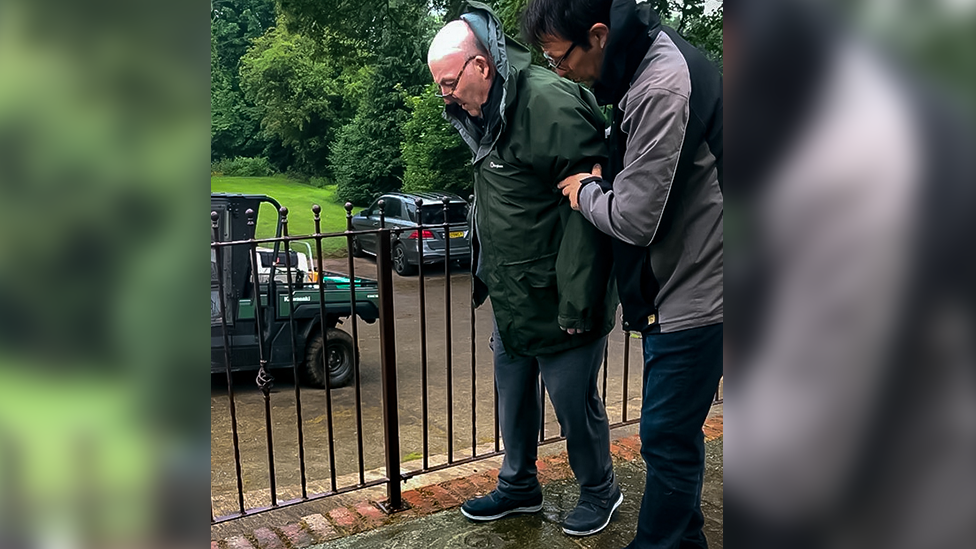
Roger taking his first steps in April 2022 with physiotherapist Jakko Brouwers
But when it came to walking, Roger was afraid of falling down and not being able to get up.
Jakko Brouwers, a physiotherapist from the Morrello clinic in Newport, started to make home visits to Roger in April 2022. Gill remembers him saying "this man will walk again".
But the first step was telling him to get on the floor, she said.
"Then he said, 'right, now crawl over to the chair pull yourself up' and he said 'now if you fall over you can get up'."
By February this year, after months at home, he was talking his first steps with a walking stick.
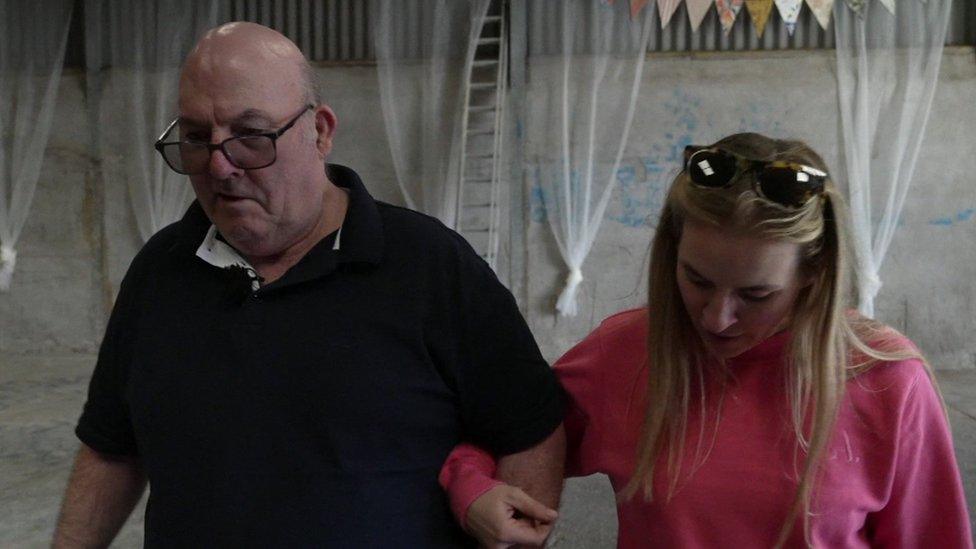
Roger and his daughter Jessie Wheatley practising for their walk down the aisle
"It's his farming gut determination and strength," Gill said, "that has put him where he is here because if he didn't have that he could have just said 'you know what, this is too much'.'
In June, his daughter Jessie Wheatley, 37, who was living in Queensland, Australia, came home to prepare for her wedding at a chapel near the farm.
Walking every day with her dad was a big part of the preparations.
During these walks, Jessie told her father how surprised she was at the progress he had made in a year.
Roger replied: "You've got to keep fighting haven't you?"
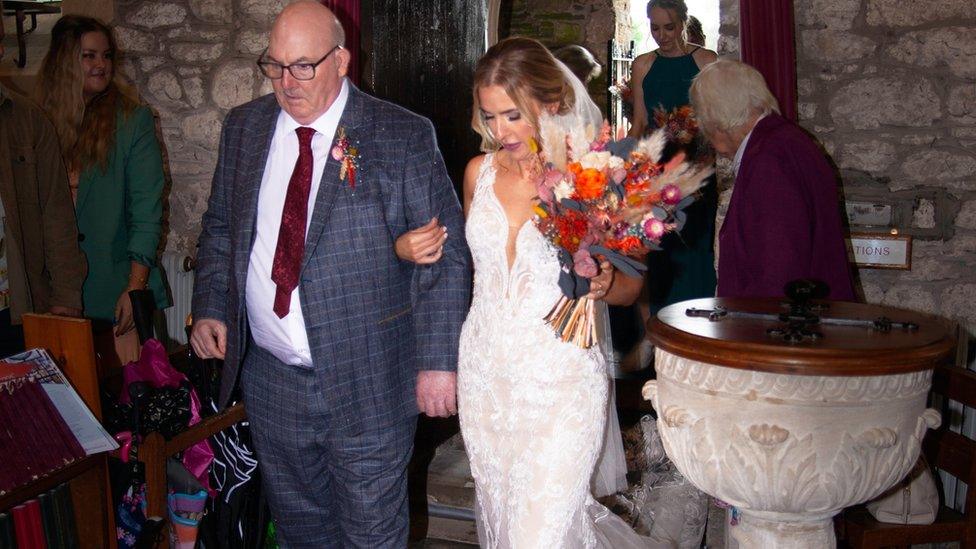
Roger achieved his goal of walking his daughter Jessie down the aisle
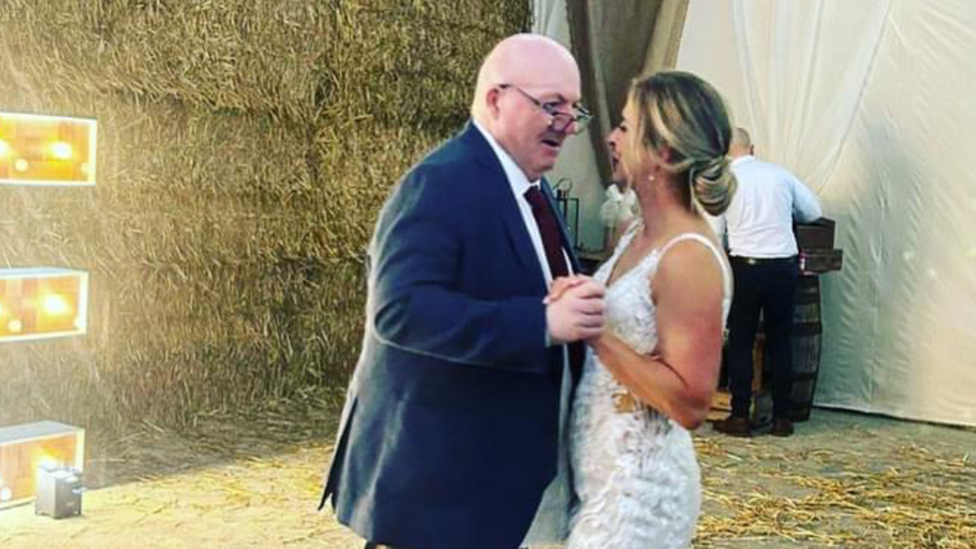
Roger also got to dance with the new bride